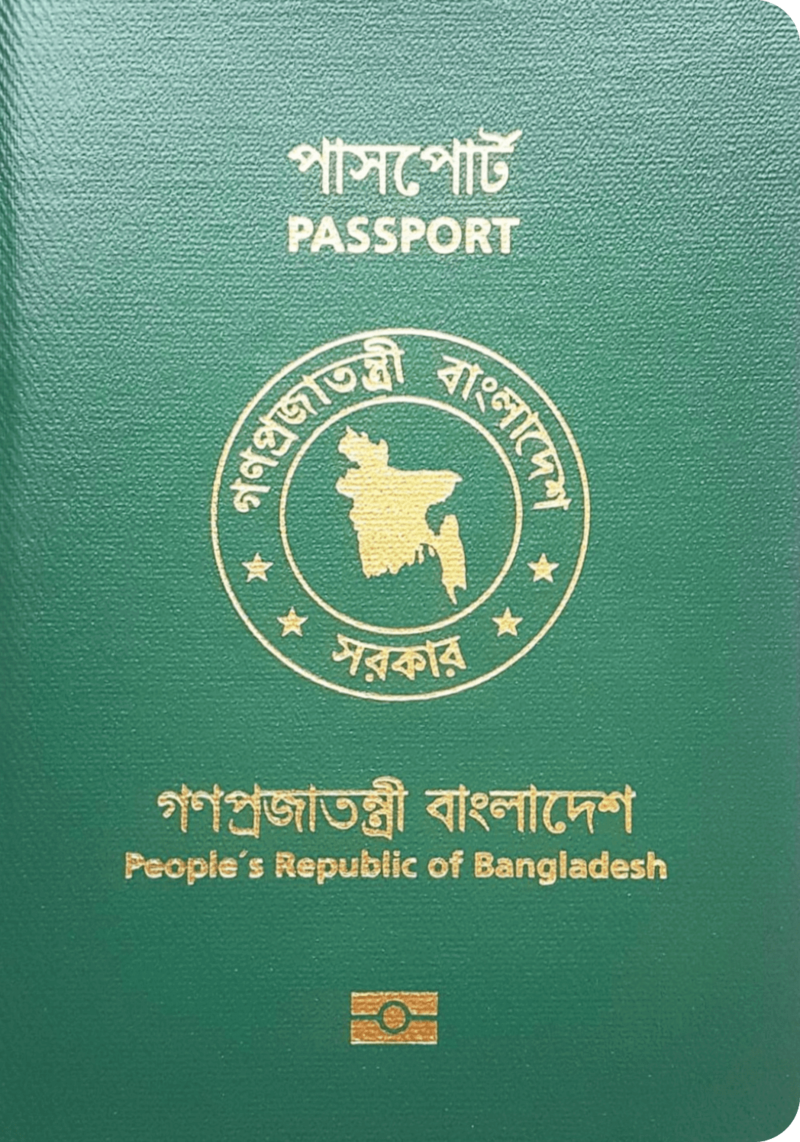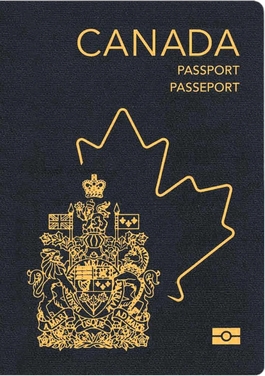E-Passports enhance security and facilitate faster processing compared to Machine Readable Passports (MRP). They also help prevent identity theft.
EPassports, or biometric passports, are the modern evolution of traditional travel documents. These passports contain an embedded electronic microprocessor chip that holds biometric information, such as facial recognition data, fingerprints, and iris scans. This technology significantly boosts security, making it harder for forgeries and unauthorized alterations.
EPassports streamline the travel experience, reducing wait times at border controls and increasing efficiency. With growing global concerns about identity theft and terrorism, the adoption of ePassports offers a robust solution. Transitioning to ePassports ensures your citizens benefit from the highest standards of security and convenience in international travel.

Credit: en.wikipedia.org
Enhanced Security Features
In today’s digital age, ensuring the security of your citizens’ travel documents is crucial. One of the key reasons to implement ePassports over Machine Readable Passports (MRP) is the enhanced security features they offer. ePassports come with advanced technology that significantly reduces the risk of fraud and unauthorized access, making them a far superior choice. Let’s explore some of these enhanced security features in detail.
Biometric Data Integration
ePassports leverage biometric data integration to provide an additional layer of security. This means that apart from the usual information like name and passport number, ePassports also store biometric details such as fingerprints, facial recognition data, and iris scans. Here are some key benefits of biometric data integration:
- Enhanced Identity Verification: Biometric data ensures that the person carrying the passport is indeed the rightful owner.
- Reduced Fraud: It becomes nearly impossible to forge an ePassport as biometric details are unique to each individual.
- Faster Processing: Automated systems can quickly verify biometric data, speeding up immigration and security checks.
For example, an ePassport with fingerprint data allows for quick and accurate verification at border control, minimizing the chances of identity theft. Additionally, facial recognition systems can compare the stored data with the person presenting the passport, ensuring a match. This makes ePassports a robust solution for maintaining the integrity of travel documents.
Anti-tampering Measures
Another significant advantage of ePassports is their anti-tampering measures. These measures ensure that any attempt to alter the information stored in the passport is easily detectable. Some of the key anti-tampering features include:
- Secure Chip Technology: The data in an ePassport is stored in a microchip that is extremely difficult to tamper with.
- Digital Signatures: Each ePassport contains a digital signature that verifies the authenticity of the data.
- Encryption: The information stored on the chip is encrypted, making unauthorized access nearly impossible.
Here’s a quick comparison between ePassports and MRPs in terms of security:
| Feature | ePassport | MRP |
|---|---|---|
| Biometric Data | Yes | No |
| Digital Signature | Yes | No |
| Encryption | Yes | No |
The inclusion of these anti-tampering measures ensures that ePassports maintain the highest level of security. If someone tries to alter the information on the chip, the digital signature will not match, alerting authorities to the tampering attempt. Encryption further protects the stored data, making it unreadable to unauthorized individuals. These features collectively make ePassports a secure option for your citizens.
Global Acceptance And Interoperability
As technology advances, cities worldwide are moving towards ePassports. These digital passports offer many advantages over traditional machine-readable passports (MRPs). One of the key benefits is their global acceptance and interoperability. Let’s dive into why implementing ePassports for your citizens is essential.
International Standards Compliance
ePassports adhere to international standards set by the International Civil Aviation Organization (ICAO). These standards ensure that ePassports are recognized and accepted worldwide. Here are some key points:
- Biometric Data: ePassports store biometric data, such as fingerprints and facial recognition, making them highly secure.
- RFID Chips: These chips store the passport holder’s information digitally, ensuring quick and easy access for verification.
- Digital Signatures: ePassports use digital signatures to protect data integrity and prevent forgery.
Compliance with these standards means that ePassports are interoperable with border control systems globally. This reduces the risk of delays and enhances security. For example:
| Feature | ePassport | MRP |
|---|---|---|
| Biometric Data | Yes | No |
| RFID Chip | Yes | No |
| Digital Signature | Yes | No |
By implementing ePassports, your city aligns with global standards, ensuring smooth international travel for your citizens.
Seamless Travel Experience
ePassports provide a seamless travel experience for citizens. Here’s how:
- Faster Processing: ePassports speed up the verification process at airports, reducing wait times.
- Automated Border Control: Many countries use eGates that read ePassports, allowing travelers to pass through quickly.
- Enhanced Security: Biometric data reduces the chances of identity theft and fraud.
Travelers with ePassports can use automated systems for quicker entry and exit. This is especially beneficial at busy international airports. For instance:
| Process | ePassport | MRP |
|---|---|---|
| Processing Time | 2-5 minutes | 10-15 minutes |
| Use of eGates | Yes | No |
| Security Level | High | Medium |
The efficiency and convenience of ePassports make travel less stressful and more enjoyable for your citizens. They can travel more easily, knowing their identity is secure and recognized globally.
Facilitation Of Automated Border Control
Governments worldwide are transitioning to ePassports from traditional Machine Readable Passports (MRPs) for numerous reasons. One significant advantage is the facilitation of automated border control. This technology offers a seamless and efficient travel experience for citizens, reducing the hassle and time spent at immigration checkpoints.
Efficient Passenger Processing
ePassports streamline the passenger processing procedure at borders. These passports contain an embedded electronic chip that stores the same information printed on the passport’s data page, along with a biometric identifier, typically a digital photograph.
This technology enables the following benefits:
- Rapid Authentication: Border control systems can quickly scan and verify the ePassport, ensuring the traveler is who they claim to be.
- Enhanced Security: The biometric data makes it difficult to forge or tamper with the ePassport, reducing the risk of identity theft and fraud.
- Seamless Integration: ePassports work seamlessly with automated border control systems, allowing for a more streamlined and efficient process.
By using ePassports, border control authorities can process passengers faster and more securely, ensuring a smoother experience for travelers. This technology also supports interoperability between different countries’ immigration systems, facilitating international travel.
Reduced Queuing Time
One of the most noticeable benefits of ePassports is the significant reduction in queuing time at border checkpoints. Traditional MRPs require manual inspection and verification by border control officers, which can be time-consuming, especially during peak travel periods.
With ePassports, the process is much quicker:
- Automated Gates: Travelers can use automated gates equipped with ePassport readers, allowing for swift and efficient processing.
- Less Manual Intervention: The need for manual passport inspection is minimized, freeing up border control officers to handle more complex cases.
- Faster Throughput: Automated systems can process a higher volume of passengers in a shorter amount of time.
Consider the following comparison:
| Process | MRP | ePassport |
|---|---|---|
| Manual Inspection | Required | Not Required |
| Processing Time | Longer | Shorter |
| Queuing Time | Extended | Reduced |
This comparison clearly shows that ePassports offer a more efficient and time-saving solution for both travelers and border control authorities.

Credit: www.reddit.com
Enhanced Data Storage And Accessibility
Epassports offer numerous advantages over traditional Machine Readable Passports (MRP). One of the most significant benefits is the enhanced data storage and accessibility they provide. Epassports come equipped with advanced technologies that allow for secure and efficient management of personal information. This ensures a higher level of security and convenience for citizens. Below, we explore two key aspects of this enhanced data storage and accessibility: Digital Signature Capabilities and Cloud-based Verification.
Digital Signature Capabilities
Epassports include digital signature capabilities that significantly enhance security and authenticity. These digital signatures serve as a unique identifier, ensuring that the information contained within the epassport is genuine and has not been tampered with.
- Authentication: Digital signatures ensure that only authorized entities can access and verify passport information.
- Integrity: They protect the integrity of the data, ensuring that it has not been altered since it was issued.
- Non-repudiation: Digital signatures provide proof of origin, ensuring that the passport holder cannot deny the validity of the data.
Additionally, these capabilities streamline the verification process at borders, reducing wait times and enhancing the overall travel experience. The use of digital signatures in epassports also facilitates the implementation of automated border control systems.
| Feature | Benefit |
|---|---|
| Authentication | Secure access to data |
| Integrity | Data remains unaltered |
| Non-repudiation | Proof of data origin |
Cloud-based Verification
Epassports leverage cloud-based verification systems to enhance data accessibility and security. This technology allows for real-time verification of passport information, ensuring that the data is always up-to-date and accurate.
- Real-time Updates: Cloud-based systems ensure that any changes to the passport data are instantly reflected, providing the most current information.
- Global Accessibility: Authorized entities can access the data from anywhere in the world, making it easier to verify the authenticity of the passport.
- Scalability: Cloud systems can easily scale to handle increased data volumes, ensuring consistent performance.
Cloud-based verification also improves the efficiency of border control processes. It allows for faster and more accurate verification of passport data, reducing the risk of errors and enhancing security.
Furthermore, the use of cloud technology in epassports supports the integration of additional services, such as visa applications and travel history tracking, making it a comprehensive solution for modern travel needs.
| Feature | Benefit |
|---|---|
| Real-time Updates | Always current data |
| Global Accessibility | Data accessible worldwide |
| Scalability | Handles increased data volumes |
Improved Identity Verification
Switching from Machine Readable Passports (MRP) to ePassports offers significant advantages for identity verification. ePassports, embedded with advanced microchips, provide enhanced security features. This blog post explores 10 compelling reasons to implement ePassports over MRPs. We will start with the critical aspect of improved identity verification.
Enhanced Authentication Methods
ePassports use advanced authentication methods that significantly improve identity verification. These methods include:
- Biometric Data: ePassports store biometric information such as fingerprints and facial recognition data. This makes it harder for unauthorized individuals to replicate or alter the passport.
- Digital Signatures: ePassports are equipped with digital signatures that verify the authenticity of the passport. This ensures that the document has not been tampered with.
- Embedded Microchips: The microchips in ePassports store critical identity data securely. These chips are difficult to forge or duplicate, providing a higher level of security.
These methods collectively make identity verification faster and more reliable. Border control officers can scan the ePassport, and the embedded microchip quickly relays the holder’s information. This process reduces the chances of human error and speeds up the verification process.
| Authentication Method | Benefit |
|---|---|
| Biometric Data | Harder to replicate or alter |
| Digital Signatures | Verifies authenticity |
| Embedded Microchips | Secure storage of identity data |
Fraud Prevention
ePassports offer superior fraud prevention capabilities compared to traditional MRPs. Key features include:
- Anti-Cloning Technology: The microchips in ePassports contain anti-cloning features. These features make it nearly impossible to duplicate the passport, reducing fraud.
- Encrypted Data: The data stored in ePassports is encrypted. This encryption makes it extremely difficult for unauthorized individuals to access or alter the information.
- Global Verification Standards: ePassports adhere to international verification standards. These standards ensure that the document is recognized and trusted worldwide.
The combination of these features makes ePassports a robust solution against identity theft. Border control systems worldwide can easily detect counterfeit documents, providing an additional layer of security.
ePassports also include tamper-proof technologies. Any attempt to alter the passport’s data is immediately detectable. This protects citizens from potential identity fraud and ensures the integrity of their personal information.
| Fraud Prevention Feature | Benefit |
|---|---|
| Anti-Cloning Technology | Prevents passport duplication |
| Encrypted Data | Secures personal information |
| Global Verification Standards | Trusted worldwide |
Cost-effectiveness And Long-term Viability
Switching from Machine Readable Passports (MRP) to ePassports offers numerous advantages for citizens. One major benefit lies in their cost-effectiveness and long-term viability. By implementing ePassports, governments can save money and provide a more durable solution for their citizens.
Reduced Document Replacement Costs
One of the main benefits of ePassports is the reduced document replacement costs. Traditional MRPs are prone to wear and tear, leading to frequent replacements. ePassports, on the other hand, have enhanced durability features:
- Polycarbonate Data Pages: These are more resistant to damage.
- Electronic Chips: They store data securely and are less likely to degrade.
- Advanced Security Features: These make it harder to tamper with the document.
Replacing an MRP can be costly and time-consuming. Frequent replacements lead to higher administrative costs and inconvenience for citizens. Here’s a comparison of average replacement costs:
| Document Type | Average Replacement Cost |
|---|---|
| MRP | $50 |
| ePassport | $30 |
By reducing the need for frequent replacements, ePassports can save significant amounts of money for both the government and the citizens.
Extended Passport Lifespan
ePassports offer an extended lifespan compared to traditional MRPs. MRPs typically last around five years, while ePassports can last up to ten years. This longer lifespan is due to:
- Robust Construction: ePassports are built with materials that last longer.
- Enhanced Security: Advanced features prevent wear and tampering.
With a longer lifespan, citizens don’t need to renew their passports as often. This reduces the overall cost and hassle of maintaining valid travel documents. Here’s a quick comparison of lifespans:
| Document Type | Average Lifespan |
|---|---|
| MRP | 5 years |
| ePassport | 10 years |
By switching to ePassports, governments can ensure that citizens have a more durable and cost-effective travel document, enhancing the overall travel experience.
Citizen Empowerment And Convenience
Switching from Machine Readable Passports (MRPs) to ePassports offers numerous advantages for citizens. One of the most compelling reasons is the boost in citizen empowerment and convenience. ePassports streamline various processes, making travel and document management more efficient and user-friendly.
Self-service Passport Renewal
ePassports enable self-service passport renewal, reducing the need for lengthy visits to passport offices. Citizens can update their passport information online, saving time and effort. Here are some benefits of self-service passport renewal:
- 24/7 Access: Citizens can renew their passports at any time, from anywhere, without waiting for office hours.
- Reduced Queues: Less crowding at passport offices means a smoother experience for those who need in-person services.
- Instant Updates: Changes are processed in real-time, ensuring up-to-date information is always available.
Consider this table comparing traditional renewal methods with self-service renewal:
| Aspect | Traditional Renewal | Self-Service Renewal |
|---|---|---|
| Time Required | Several hours | Less than 30 minutes |
| Office Visits | Multiple visits | None needed |
| Accessibility | Limited to office hours | 24/7 online access |
Self-service passport renewal enhances convenience and empowers citizens by giving them more control over their documents. This system minimizes bureaucratic hassles and makes the renewal process straightforward and efficient.
Mobile Passport Applications
With ePassports, citizens can leverage mobile passport applications to further enhance convenience. These applications provide various functionalities that make managing travel documents simpler. Here are some key features:
- Real-Time Status Updates: Track the status of your passport application or renewal in real-time.
- Document Storage: Store digital copies of your passport and related documents securely on your phone.
- Appointment Scheduling: Book appointments at passport offices directly through the app.
Consider this table showing the advantages of mobile passport applications:
| Feature | Benefit |
|---|---|
| Real-Time Updates | Stay informed about the status of your passport at all times. |
| Document Storage | Keep all your travel documents in one secure place. |
| Appointment Scheduling | Book and manage appointments with ease. |
Mobile passport applications make the entire process of obtaining and managing a passport more user-friendly. This technology puts essential services at the fingertips of citizens, making travel preparations less stressful and more efficient.

Credit: en.wikipedia.org
Frequently Asked Questions
What Are The Benefits Of The Epassport?
EPassport offers faster immigration checks and enhanced security features. It reduces identity theft and provides global acceptance. The embedded chip stores biometric data, ensuring quicker and more secure travel.
What Is The Difference Between Epassport And Machine Readable Passport?
An ePassport contains an embedded electronic chip with biometric data. A machine-readable passport has data encoded in a printed format readable by scanners. Both enhance security, but ePassports offer more advanced verification.
What Is The Purpose Of An Epassport?
An ePassport enhances security with an embedded electronic chip. It stores biometric data, reducing fraud and identity theft. It speeds up immigration processes and improves travel efficiency.
How Does An Epassport Enhance Security?
An ePassport enhances security by embedding a microchip with encrypted biometric data. This prevents forgery and unauthorized access. The chip stores fingerprint and facial recognition information, ensuring only the rightful owner can use it. Enhanced border control systems quickly verify the authenticity of the passport, reducing fraud.
Conclusion
Embracing ePassports ensures enhanced security, faster processing, and improved international recognition. It’s time to upgrade from MRP to ePassports for a better travel experience. Implementing ePassports will protect your citizens and streamline travel procedures, making global mobility safer and more efficient.
Make the smart choice today for a secure future.

